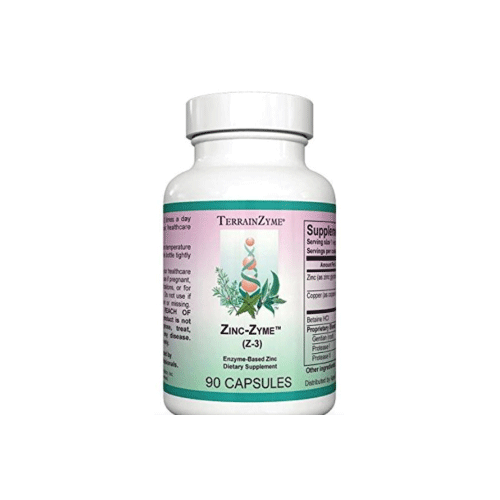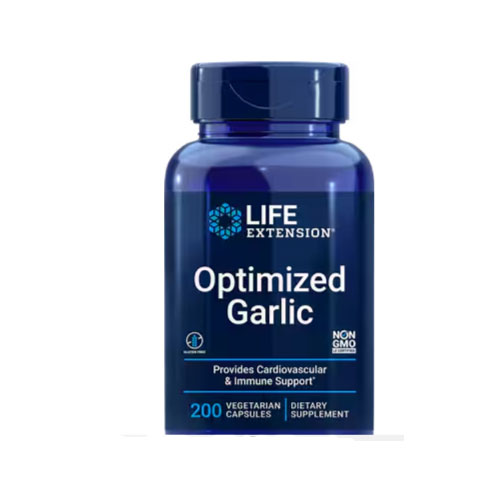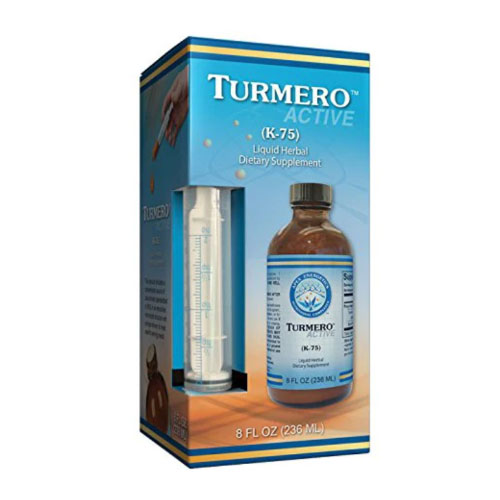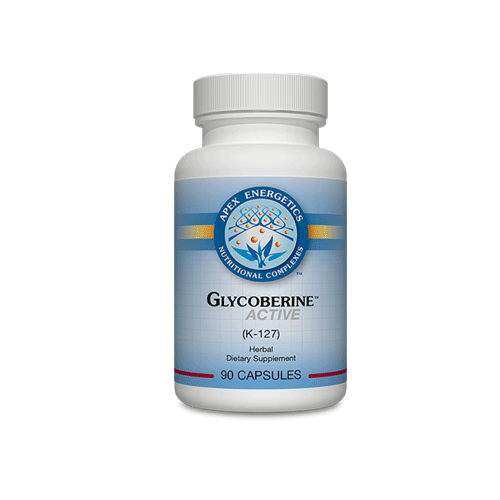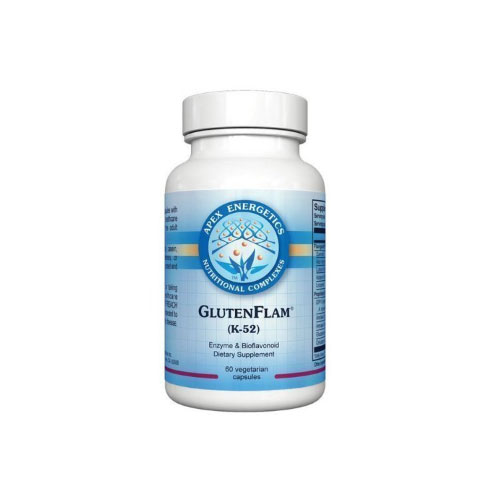What Would Compel an Otherwise Sane Person, or Even a Medical Doctor, to Attend a Lecture at 6:30 A.M. on a Sunday?
Novel Interventions for Low Libido
Conclusion
The prevalence of sexual dysfunction among all women is estimated to be between 25% and 63%. The prevalence in postmenopausal women is even higher, between 68% and 86.5%. (1) 14% of young men between the ages of 18 and 29, experience sexual dysfunctions, rising to 50% between the ages of 40 and 70.(2)
Low libido manifests as fatigue, depression and or anxiety, personal embarrassment and low self-esteem, family life deterioration, memory loss, and diminished communication and satisfaction with one’s partner.
Viagra released in the late 1990s, ushered in a new era of sexual openness. Suddenly, it was classé, even at $61 a pill, 1998 introductory price, to suffer from lack of sexual function and desire.
Though a monumental breakthrough, Viagra turned out not to be the Holy Grail of sexual proficiency. Aside from the cost, some patients discovered that Viagra was ineffective. Others, many who did not actually suffer from ED, were looking for exaggerated sexual prowess not afforded by Viagra.
Like much of life, sexual dysfunction is a multifactorial problem requiring a multifaceted solution. Our task is to explore the four pillars of libido inhibition:
- Hormone Imbalance
- Nutritional Deficiencies
- Psychological/Emotional Difficulties
- Vaginal Atrophy
Hormone Imbalance
Physiologically, hormone imbalance is the primary root cause of sexual dysfunction and lack of sexual desire. (3) Hormones are the engine that drives pleasure, attachment, love, orgasms, and longevity. Individuals with a balanced hormone pattern are calm, affable, enjoy high levels of trust, and intimacy. (4)
To address hormonal disruptions leading to low libido, we need to “CHEAT-O.” The “CH” represents cholesterol, the seed we’ve demonized as the root of all evil in the Western world. “E” represents the sex hormones estrogen, progesterone and testosterone, “A” is the adrenal glands, “T” is the thyroid, and “O” is oxytocin.
Hormonal Effects on Libido
| Hormone | Effect | Effect of Deficiency |
| Cholesterol | Substrate necessary for the production of sex hormones | Low testosterone
Low libido, sexual desire |
| Estrogen | Enhances Blood Flow to Brain
Increases HDL Maintains Vaginal Tissue |
Hot Flashes
Night Sweats Brain Fog, Dementia Osteoporosis |
| Progesterone | Increased Sexual Desire
Calming Improved Sense of Well Being
|
Poor Libido
Agitated, Irritable Insomnia Weight Gain Depression |
| Testosterone | Directly Responsible for:
Sex Drive, Sexual Desire Vaginal Lubrication |
Apathy, Depression
Poor Libido Poor sexual performance |
| Adrenal Gland-Cortisol | Stress Response
Energy Production Production of Luteinizing Hormone (LH) Testosterone Precursor |
LH Suppression =
Testosterone Deficiency Fatigue, “Burn-Out” Sugar Cravings |
| DHEA | Sexual Drive and Desire
Precursor Substrate: Testosterone Estrogen |
Erectile Dysfunction
Poor Libido Hypothyroidism Depression |
| Thyroid | Sexual Performance
Sexual Desire |
Erectile Dysfunction (Males)
Dyspareunia (Female) |
| Oxytocin | Sexual Function
Pleasure |
Fear
Loneliness Isolation |
| Prolactin | Mediates Sexual Satisfaction | Male:
Impotence Decreased Sperm Decreased Libido Decreased testosterone Female: Amenorrhea Decreased ovulation Diminished Libido |
Evaluation
History Physical /Testing
Medical / Surgical / Social / Family history / Gynecologic
Comprehensive symptom checklist
Pap, BMD, Colonoscopy (age dependent)
Baseline testing needed:
CBC, CMP, cRP, Homocysteine, Lipid Profile
25 Oh-Vit D3
Hemoglobin A1C, Fasting Insulin
Thyroid-TSH, free T3, free T4, rT3, TPO, Antithyroglobulin, TSI (if S/S/ indicate), ferritin
Hormones-Estrone, Estrogen, Progesterone, Testosterone (Day 19-21 if Premenopausal)
E/P Ratio =E1+E2/P Goal <250
P/E Ratio=Px 1000/E Goal 100-500
As Indicated
Cortisol (Serum, Urine, Saliva)
DHEA-S, IGF-1
Oxytocin; Oxytocin Challenge Test
Macronutrient Testing
Nutritional Deficiencies
We are what we eat. What we eat has a significant impact on all activities of daily living, including libido. (5) Symptoms of nutrient deficiencies include fatigue, lethargy, foggy thinking, dry skin, brittle nails, weight gain, depression, weak immunity, and hair loss.
General Nutritional Remedies for Low Libido
1. Balance and/or Replace Deficient or Insufficient Micronutrients
a.Vitamin A-Dry skin is a tip-off for a diminished Vitamin A.
b.Vitamin B1, Thiamine – Maintains libido, metabolism, and energy.
c.Vitamin B3-Lowers cholesterol and drives blood flow to the brain
d.Vitamin D-Maintains essential sex hormone production
e.Zinc-Boosts testosterone and acts as a natural estrogen blocker in men
f.Omega 3 Fatty Acids,-Anti-anxiety, increases blood flow to the pelvis.
2. GI Repair-The 4 R’s
a.Remove-Gluten, Wheat, Dairy, Soy, Trans Fats
b.Repair-Omega 3s, Fish Oil, Turmeric, Aloe Vera
c.Restore GI Flora-Probiotics, Fermented Foods
- Replace-Digestive Enzymes, Bile Salts (Himalayan Pink Salt)
3. B12/MIC Injections 1-2x/ weekly
a.B-12 maintains energy, neuroprotective, enhances mood, and stabilizes blood sugar.
b.Methionine, Inositol, and Cholineconserves oxytocin, reduces stored body fat
4.Myers IV Cocktail
- IV magnesium, calcium gluconate, B complex, Vitamin C
5. Glutathione IV/Liposomal or as oral N-Acetyl Cysteine
- Enhances sexual energy and desire.
- Liver detoxification, weight loss
- Strength, endurance, muscle metabolism
- Main side effect; pruritus, or itching at injection site=low zinc level.
- Zinc increases testosterone levels while decreasing estrogen levels.
Remedies for Both Men and Women
1. Tribulus Terrestris:
- Increases sexual desire in by releasing nitrogen from the endothelium and nitrergic nerve endings
2. TrigonellaFoenum-Graecum (Fenugreek):
- Increases sexual cognition, sexual arousal, sexual experience, and orgasm/ sexual drive
Remedies for Low Libido in the Menopausal Patient
1. Di-Indole Methane (DIM) (Dose: 100 mg 2-3x/d)
a. Supports hormone detoxification
b. Promotes the “healthy” metabolism of estrogen (2-hydroxy)
c. Reduces the disease-inducing pathway of estrogen (4 & 16-hydroxy)
- Alleviates the symptoms of estrogen dominance
- Reduces the inflammatory cytokines TNF-alpha, IL-6, IL-Beta, NF-KB, and PGE2.
- Non-hormonally alleviates estrogen deficiency symptoms
- Protects improves prostate function
2 .Genistein: (Isoflavones) (Dose: 500-1000 mg/d)
a. Minimizes incidence and duration of hot flashes/ night sweats
b. Plays a role in cancer prevention
c. Lowers elevated LDL cholesterol and raises HDL cholesterol.
d. Stimulates bone remodeling.
3. Chrysin: (Dose 250 mg bid p.o., topical 50 mg/d)
a. Decreases aromatization of testosterone to estrogen/DHT.
b. Naturally-occurring ligand for benzodiazepine receptors
c. Acts as an anticonvulsant.
4. Magnesium: (Dose: 100-400 mg/d)
a. Aids with relaxation
b. Improves blood flow
c. Improves sexual function.
5. Swedish Pollen Extract
- Relieves Estrogen Deficient S/S
6. Maca Root (1000-1500 mg/d)
- Boosts physical and mental energy
- Reduces stress, calm nerves
- Balance mood.
Remedies for Low Libido in the Peri-Menopausal Patient
1.DIM
2.Chaste Berry Extract
a.Supports Normal Prolactin Levels
- Supports hormone balance
3.Vitamin D3
- Supports cyclic fluctuations during the menstrual cycle
- Supports calcium absorption and bone strength
- Ensures adequate immune function, heart, brain and blood vessel integrity
4. Magnesium
a.Affects neuromuscular activities which create PMS.
Remedies for Low Libido in the Male Patient
1. Lepidium Meyenii (Maca):
a. Testosterone mimic, supports sexual function
b. Alleviates SSRI-induced sexual dysfunction.
2. Epimedium Sagittatum (Horny Goat Weed):
- Promotes testosterone production
- Increases sexual response
3. Tongkat Ali (Eurycomalongifolia):
- Stimulates the Leydig cells of testes, boosting testosterone production.
- Maintains normal T levels
- Supports sexual desire and fertility, (sperm concentration, motility),
- Promotes positive mood and energy.
Supplements for Estrogen Support
1. Calcium:
- Assists estrogen breakdown in the liver, making it less toxic.
2. Cysteine:
- Prevents oxidation of estrogen
- Decreases breast cancer incidence.
3. Vitamin B6:
- Protects genes from estrogen-induced damage.
4. Vitamin D:
- Enhances estrogen-positive effects on bones.
5. Vitamin K:
- Lowers ratio of estradiol to estrone.
6. 7-Keto DHEA:
- Decreases estrone by 50 % in 8-12 weeks, weight loss.
Supplements for Testosterone Support
1. Vitamin C:
- Protect against prostate cancer.
2. Vitamin D:
- Regulates the synthesis of testosterone.
3. Carnitine:
- Increases dopamine, which boosts testosterone.
4. Magnesium:
- Increases free and total testosterone levels in men and women.
5. Zinc:
a. Synthesizes and secretes LH and FSH
b. Plays an essential role in testicular growth.
c. Acts as a natural aromatase inhibitor.
d. Increases testosterone and lowering estradiol.
i. Zinc deficiency=decreased in testosterone and increased estradiol.)
Remedies for Thyroid Support
1. Choline:
a. Stabilizes mood and cognition in hypothyroidism.
2. Vitamin C and E:
a. Assists in restoring thyroid function if the liver is compromised.
3. Vitamin A:
a. Activates gene that regulates TSH production.
4. Zinc:
- Increases T3 in patients who are zinc deficient.
5. Selenium:
a. Converts T4 into T3.
b. Protects the body against hydrogen peroxide
c. Reduces TPO levels.
d. Foods:
i. Brazil nuts. meats, fish, shellfish.
ii. Dose: 200 mcg/day.
6.Iodine:
- Improves immune functions
- Decreases singlet oxygen formation
- Primary cause of oxidative damage to DNA and macromolecules
- Is anticarcinogenic
- Detoxifies heavy metals
- Lead, mercury, cadmium, and aluminum
- Foods
- Sea vegetables, saltwater fish.
- Dose-177- 225 micrograms (low dose)
- “Homeopathic” dose to stimulate own iodine production.
- Higher doses, 12.5 milligrams can lead to hyperthyroid
iii. if unchecked, burnout, to hypothyroidism.
Peptides for Libido Enhancement
1.PT 141
i. Developed from Melotanin II-skin darkening inducer.
ii. Side effects = sexual arousal and spontaneous erections.
iii. Promotes sexual arousal in men and women
iv. Works directly on the nervous system, not blood flow
v.80% effective
Pharmaceutical Interventions for Erectile Dysfunction and Vaginal Atrophy
1. PDE-5 Inhibitors- The “Little Blue Pill”
- Prolong vasodilation in the prolonged vasodilation in the penis (and lung).
- Prolonged penile erection and decrease pulmonary vascular pressure.
- PDE-5 inhibitors have little effect on the systemic vasculature.
- Types
- Sildenafil (Viagra: 1998)
- Tadalafil (Cialis: 2003)
- Vardenafil (Levitra: 2003)
- Avanafil (Stendra: 2012)
2. Prasterone 6.5 mg
- FDA Approved vaginal insert for moderate to severe pain during sexual intercourse caused by vaginal atrophy after menopause.
3. Estriol: 1 mg/ml Intravaginal Cream or Suppository
- Topical E3 relieves postmenopausal atrophy, vaginal dryness, and urinary incontinence.
- No brain, bone, or heart protection of estradiol/
- Dose: 1 ml nightly x 14 nights then 1 ml nightly 3x/wk. x 14 nights the 1 ml as needed.
4. Testosterone 0.5-2.0%: Compounded intravaginally or topically.
- Maintains bone strength, bone density, improves muscle tone and body composition, increases energy and endurance
- Maintains skin turgor, collagen production, and texture
- Restores and reinvigorates sexual desire and stabilizes emotional well being.
- Testosterone administration to physiologic levels doubles, on average, the number of sexual events per week.
- Dose: Dose 1.25‐ 10 mg per day q AM
- – Starter Dose or with Breast Tenderness, 1.0 mg/d
- – With Breast Cancer,1‐2 mg/d
- – With Fatigue, 1-2.0 mg/d
- — With Poor Libido 2.0 mg/d
5. Oxytocin-” The Love Hormone”
- Oxytocin increases intimacy, the desire to be held and touched
- Reduces social anxiety, improves sexual function, libido, erection, and orgasm
- Dose:
- 25-800 IU (We usually start at 50 IU) as buccal troche or nasal spray
- Compounded Combination
- Daily Use:
- Oxytocin 50 IU
- Tadalafil 5 mg
- Apomorphine 2 mg
- Daily Use:
Vaginal Rejuvenation
Platelet Rich Plasma
- Platelet-rich fibrin extracted from patient’s serum.
- Contains seven types of cell, blood vessel, collagen, and tissue growth factors.
- For Women:
- Vaginal lubrication and improvement of urinary incontinence
- Medical Conditions Treated With Vaginal PRP
- Female Sexual Arousal Disorder
- Hypoactive Sexual Desire Disorder (Low desire)-10 % incidence
- Female Orgasmic Disorder-5% Incidence
- Dyspareunia-10-20% incidence
- Lichen Sclerosus
- For Men:
- Restores sexual performance
Exosomes-The New Kid on the Block
- Molecular messenger system
- Second generation stem cells filtered of:
- Inflammatory proteins, cytokines,
- Donor genetic material
- Donor’s blood type. Any or all of these issues may cause the body to reject stem cells.
- Screened for hepatitis and HIV, exosomes are obtained from willing donors.
- Combined with platelet-rich plasma to treat:
- vaginal atrophy
- erectile dysfunction
- Intravenous push for a global effect.
Radiofrequency Energy and Laser Therapy
1. Radiofrequency
- Improvements in sexual desire, vaginal sensitivity, intensity, intimacy, and orgasm
- “Side effect” of 90% improvement in urinary continence.
- Stimulates the nerves of the vaginal wall to release neuropeptides.
- Upregulates nerve sensitivity to the area.
- RF is a heat application ranging from 39-47 degrees C.
- Applied to tissue improves microcirculation of the treated area
- Results in new collagen layers to strengthen underlying support structures.
- Painless, no anesthetic, has no downtime
- RF instrument is a wand no more narrow than a finger.
- “Dose”
- 3 treatments 1 month apart, followed by a PRP-Exosome rx.
2. Carbon Dioxide Laser System
- Treat internal vaginal tissue-not indicated for other structures
- Treat incontinence, vaginal dryness, and vaginal laxity.
- Laser Rx. punches micro holes vaginal wall.
- May need local or (rarely) general anesthesia
- Side effects:
- Redness, swelling, and discomfort
- Downtime, on average, of 3 three days.
- CO2 laser device is an inch in diameter.
Radiofrequency Versus CO2 Laser
| Radiofrequency | CO2 Laser |
| Radiofrequency | Fractional CO2 Laser |
| Heat Promotes Blood Flow and Collagen Stim | Heat and Ablation Increase Blood Flow |
| No Anesthesia | Local, Rarely General Anesthesia |
| No Downtime | Downtime: Up to 3 Days |
| 45-minute appointment | 45-minute appointment |
| 3 Treatments Four weeks apart | 3 treatments 6 weeks apart |
Treatment Zones Radiofrequency Versus CO2 Laser
| Radiofrequency | CO2 Laser |
| ●Atrophic Vulvovaginitis: Non-hormonal
●Stress Incontinence ●Labia Majora Laxity ●Overactive Bladder ●Vaginal Laxity ●Pelvic Prolapse ●Orgasmic Dysfunction: 50% average reduction time to achieve ●Repetitive Vaginitis: Normalizes vaginal pH ●Repetitive UTI: Normalizes vaginal tissues ●Lichen Sclerosis and Hyperplastic Dystrophy: Adjunct to steroid and PRP |
●Atrophic Vulvovaginitis: Non-hormonal
●Stress Incontinence ●Repetitive Vaginitis ●Repetitive UTI
|
On balance, we believe the radio frequency device is a superior method for addressing the issues in our discussion with no downtime and no potential for damaging tissue as the laser can.
DOSAGE SUMMARY SCHEDULE
The Primary Hormones
Testosterone
◆ Males
- Transdermal cream: 1-20%, ½ to 1 gm daily to the inner thigh or inner arm
- Intramuscular (injections): 40-100 mg IM weekly or split dose twice weekly
- Pellets: 500-1400 mg/Rx. (Lasts 4-6 mo.)
- Under 40 or to preserve fertility:
- Clomiphene citrate: 25-50 mg 2-5 times weekly.
- HCG: 3000 IU subcutaneously weekly x 2; then 1000 IU twice weekly. Change off every third month to avoid antibodies
◆ Females
- Transdermal: 5-20 mg/gram, ½-1 gr. daily to the inner thigh or inner arm
- Intramuscular: 5-20 Mg every 7 to 14 days
- Pellets: 80-150 mg/Rx
◆ Notes
- Elevated estrogen levels in men result from aromatase activity.
- Zinc citrate (30-90 mg/d)
- Quercetin (250 -500 mg/d)
- Glycyrrhiza – licorice
- Grape seed extracts composed mainly of proanthocyanidins
- Resveratrol
- DIM (1-3 gm/d p.o.}
- Chrysin (250 mg bid p.o., topical 50 mg/d)
- Progesterone Cream 2-5%, caps 10-15 mg/d
- Myomin
- Berberine
- Vitamin K
- Anastrozole (0.5-1.0 mg 1-3x/wk.)
- Transdermal preparations for women often contain multiple hormones.
- See chart after progesterone dose discussion for combination estrogen/progesterone/testosterone transdermal formulas.
- Testosterone excess remedy
- Saw Palmetto: 240-260 mg. twice daily
- Metformin: 250-1000 mg/d
- Spironolactone: 100 mg 1-2x/d
- Spearmint tea
- Hair loss due to elevated testosterone
- Reduce the testosterone dose by 50%
- Increase doses of the estradiol and progesterone
- Finasteride 2.5 mg/d
- Platelet-rich plasma (Increases hair count 30%, on average)
- Injection or dermabrasion pen yields up to 30 % improvement in hair count
- melatonin compounded cream applied nightly to scalp for six months
- Laser cap
Estrogen
◆ Females
- Bi-est gel, (80/20) dosed at 0.5-5.0 mg/gm
- Estriol 5 mg/gm @ 1 gm intravaginal suppository @ bedtime for vaginal dryness.
- Pellet insertion
- Estrogen target blood level is 75-100 pg/ml
- Estradiol 6-15 mg pellet
◆ Notes
- Estrogen excess
- Progesterone offset-nights 14-25 pre-menopause
- Elagolix: 150-200 mg
- Weight loss
- Liver detox
- Ultrasound of pelvis Re: fibroids, tumor
- If estrone excess: 7 Keto DHEA (25-50 mg.)
- Breast Cysts
- Progesterone cream 50 mg/gm apply @ bedtime x6 week minimum
- For vaginal bleeding, breast tenderness
- Lower Dose
- Double progesterone until symptoms disappear
- Progesterone cream 50 mg/gm apply @ bedtime x 6-week minimum
Progesterone
◆ Females
- Menopausal:
- Capsule (daily) 100-200 mg @ bedtime
- Cream 50-200 mg/gm @ bedtime
- Perimenopause: 50-100 mg two to four times per day
- PMS (14 or 30 days) 100 mg one to four/d until relief
- Vaginal bleeding (stop Estrogen) 100-200 mg two times a day
- Endometrial Hyperplasia 200 mg bid
◆ Notes
- Progesterone excess
- Chasteberry
- Swedish pollen extract
- Combinations
Estrogen/Progesterone/Testosterone Combinations(5)
| Estradiol | Estriol | Progesterone | Testosterone | Application | |
| Starter | 0.5 mg | 2.0 mg | 100 mg | 1 mg | Vaginal |
| Starter II | 0.5 mg | 2.0 mg | 100 mg | 0 mg | Transdermal |
| Breast Tender | 0.1 mg | 1.5 mg | 100 mg | 1 mg | Vaginal |
| Breast Tender II | 0.1 mg | 1.5 mg | 100 mg | 0 mg | Vaginal |
| Fatigue | 0.5 mg | 2.0 mg | 50 mg | 1-2 mg | Vaginal |
| Libido | 0.5 mg | 2.0 mg | 100 mg | 2 mg | Transdermal |
| Cancer | 0.0 mg | 1.0 mg | 100 mg | 1-2 mg | Vaginal |
Growth Hormone Injectables
- HGH 0.8-1.2 IU/day SQ5-7 IU day/wk
- Sermorelin w or w/o GnRH 2 or 6 (2 causes nausea, 6 causes hunger)
- Peptide CJC 1295 with DAC 0.5-2.0 mg q. week (can cause hot flash for 5-15 minutes)
- Oral spray:
- HGH spray (homeopathic) (3 sprays under tongue @ bedtime-let absorb)
- Secretropin, Dynotropin-(3 sprays under tongue @ bedtime-let absorb
Thyroid
- Medications
- T4 only (synthetic): Synthroid, Levothroid, Levoxyl, Levothyroxine
- T3 only: Cytomel, Liothyronine
- T3/T4 combo (synthetic): Thyrolar, Euthyroid, Liotrix
- T3/T4 combo (bioidentical): Armour, Nature-Throid, Westhroid, desiccated
- Diet
- Gluten free
- Allergy 4 Rs elimination
- Autoimmune protocol
- Gluten-free diet
- Plant sterolins: Moducare, Wobenzym N
- Low-dose Naltrexone
Cortisol
- Stress reduction techniques-reading, running, walking, Tai chi, yoga, etc.
- Adaptogenic herbs: Rhodiola, ginseng, ashwagandha, and cordyceps based supplements
- Adrenal glandulars
- Low-dose hydrocortisone-7.5 mg in am, 5 mg at noon, 2.5 mg between 4 pm and 6 pm
The Secondary Hormones
DHEA
- Men: 25-50 mg daily at bedtime
- Females: 10-25 mg at bedtime
Pregnenolone
- Maintenance: 30-60 mg
- Memory loss: 100-150 mg am and pm
Prolactin
- Hyperprolactinemia (Pituitary Adenoma)
- Bromocriptine: 2.5 mg 2-3 x/d.
- Dostinex: 0.5 mg twice weekly
- Vitamin B 6-100 mg/d
- Chasteberry-lowers prolactin
- Ashwagandha-lowers prolactin
- Hypoprolactinemia (manifesting as treatment-resistant anxiety/depression)
- Acupuncture
- Metoclopramide-10 mg twice daily
- H2 Blockers
- Estrogen
- Pituitary evaluation
- Neurotransmitters-GABA, serotonin
The (Libido) Magnificent Seven
1. B Vitamins-100 % minimum RDA
2. Zinc Citrate 30-50 mg
3. Omega 3 Fatty Acids-2000-4000 mg/d
4. Probiotics-Minimum of 20 Billion Units
5. Magnesium-100-300 mg/d
6. MACA-1000-1500 mg/d
7. Fenugreek-500-1000 mg/d
References
- Dana R Ambler, DO,1 Eric J Bieber, MD, Chief Medical Officer,2 and Michael P Diamond, MD, Sexual Function in Elderly Women: A Review of Current Literature, Rev Obstet Gynecol. 2012; 5(1): 16–27. https://www.ncbi.nlm.nih.gov/pubmed/22582123
- Fox, Christopher. “Clinical Correlation between Erectile Function and Ejaculatory Function in the Czech Male Population.” PLoS One, vol. 13, no. 7, Public Library of Science, July 2018, p. e0199588.https://www.issm.info/sexual-health-qa/do-men-suffer-from-low-libido/
- Hertoghe, T. Passion, Sex, and Long Life – the Incredible Oxytocin Adventure. ISBN 978-2-9599713-4-1, January 2010, Luxemburg, by International Medical Books/Archimedial, 4B Route d’Arlon, L-8399, Windhof, Luxembourg.
- Benson, Dick. “Food Is Medicine.” Alternative Medicine, no. 20, InnoVision Health Media, Inc., Jan. 2015: 6.
- Gordon, M. Traumatic Brain Injury., San Diego, CA: Millennium Health Centers, 2016

